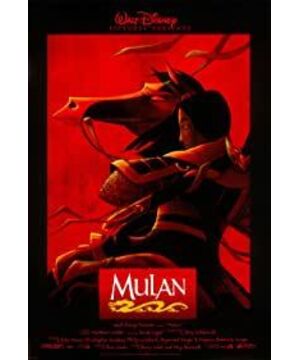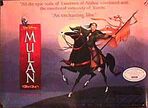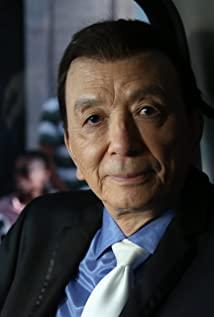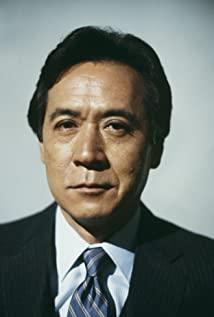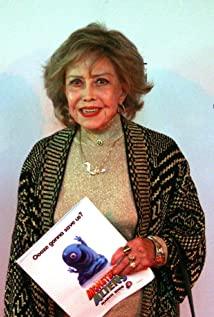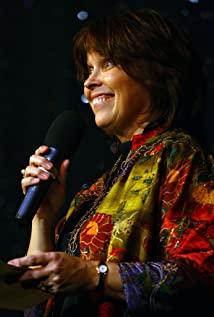The image of "Mulan" can be traced back to the Yuefu folk song "Mulan Ci". This narrative poem of more than 300 words is divided into three parts: leaving home, going on an expedition, and returning home. It tells the story of the eldest daughter of the family, Mulan, who joined the army for her father and then returned home. The long poem connects the scenes with actions, details the plot and outlines the characters: What does Mulan look like? What happened during the expedition? ——These questions are not explained in the original poem, thus providing a rich interpretation space for the image of Mulan.
In 1998, Disney brought the story to the screen, making the animated Mulan a household name in America. After more than 20 years, in September 2020, Disney's live-action version of "Mulan" was released in mainland China, and Liu Yifei's Hua Mulan made a lot of waves. On the basis of "Mulan Ci", Disney's two versions of Hua Mulan have added friendship lines, love lines, and elements such as lucky charms, qi, and true self, showing a clear creative intention: to break the stereotypes attached to traditional women Impression, shaping the protagonist Hua Mulan into a character with contemporary spirit and female power. However, in terms of the adaptation effect, the two versions are different.
1. Ordinary girl, or fighting hero?
Different from the princess who is the object of male desire in the early works, the baptism of feminist thought makes Disney pay more attention to expressing the subject consciousness and personality power of women in the shaping of female characters in the later period. Under such circumstances, as an excellent sample for reflecting on the unequal status of men and women, Hua Mulan in "Civilization of Mulan", "An Neng distinguishes me as male and female" and "Parents know that a woman and a man are gay" is naturally taken as the object of adaptation .
Both the 1998 version and the 2020 version of "Mulan" emphasized a certain "heterogeneity" of Mulan beyond the stereotype: not elegant, not dignified, not submissive - this kind of female inner strength, called in the 98 version. "WHO I AM INSIDE", in the 20th edition is "Qi". Both films link this power to "truth", emphasizing that only by revealing the true self can the greatest extent of female power be unleashed.
But if you look closely, you can find that there are differences in the understanding of "truth" between the two versions of Mulan. It is revealed that the "truth" of the 1998 edition is closer to the search for "people" in the full sense. At the narrative level, the former's "seeking truth" deliberately tells the process of Mulan's "breathing out", while the latter is more inclined to Mulan's process of "looking for gas without air".
"Qi pervades the universe and all living things. We are born with it, but only the most authentic person will have a profound connection with his qi." Although the 2020 version of Mulan emphasizes the universality of "Qi", in Mulan this The characters all reflect the power and speciality of "Qi": Mulan in childhood could jump off the roof and land smoothly; Mulan after joining the army could easily win the contest with Hong Hui, an extraordinary male soldier - "Qi" ”, more like the halo on Mulan, a talent that is innate and not shared by others. In the 2020 version of "Mulan", "Qi" has already been established, and the focus of the film's narrative is on the subsequent process from "repressed" to "discovered".
Of course, the film deliberately arranged the training process to reflect the cultivability of "Qi", but the presentation of this was so sloppy that it looked more like a symbolic performance: Mulan carried a barrel up the mountain, dripping water, and the atmosphere was not. Panting - and behind Mulan, the other male soldiers stopped frequently, panting for breath, and some even collapsed on the ground crying - this is obviously an absurd scene that is not realistic and logical. "Qi", as the superpower imparted to Mulan, is based on the opposition between men and women and even between man and god. The value judgment of the film is also revealed: only the absolute power beyond human nature can be considered to have "female power" - constantly emphasizing the differences between men and women and erasing the commonality of both sexes as human beings, in order to belittle or even demonize The male way to highlight the bravery, goodness, truth and purity of women is not necessarily another kind of pandering to the concept of feminism?
If "Qi" is understood as the inner strength of human beings, then compared with the excavation of "Qi" in the 20th edition, the 98th edition of "Mulan" focuses on the construction of "Qi". Although there is the same training process, before that, the 98 edition concentrated on portraying Mulan as an ordinary person. Of course, the 1998 version of Mulan also has a certain "heterogeneity", but this "differentness" is not the other's "differentness" - it does not refer to some kind of superpower that is above human nature, but refers to a woman's self that transcends stereotypes Traits, such as liveliness, freedom, unruly, etc. The film depicts these qualities of Mulan in detail without making any value judgments.
After entering the barracks, these qualities that used to be naughty and cute at home became out of place: as an ordinary soldier who was indistinguishable from others, Mulan Fu became self-defeating by pretending to be a man as soon as he joined the army, causing a farce. On this basis, training Yu Mulan shows the necessity: the training process of the 98 version of Mulan focuses on eliminating the original "bad habits" of people and exploring their own potential. It does not require the trainee to become a god, but to become a better person on the basis of himself. It is not only aimed at male soldiers, but also at Hua Mulan as a woman: "You are clumsy and sloppy, but I will change your future and become a better version of yourself." - This kind of training, in essence, is how to transform a different The worldly child is trained to be an independent adult, regardless of gender.
So we can see that, under the training of officer Li Xiang, Mulan changed from a naughty and undisciplined ordinary girl to a resolute and resolute adult woman, and her victory in the war was not through the strength of the sword, but the flexibility Witty use of women's own power. For example, climbing the high walls of the palace with the ribbons of women's clothing, and prying away the long swords of Rouran with a fragile short fan - in the world of the strong, endless violence against violence seems to be the logic of justice. But Rooke just showed the breadth and depth of the creator's understanding of the world - can women gain a place in a patriarchal society only by obliterating their original gender characteristics? Putting aside power, allowing women to return to women and bring their own characteristics to the extreme may be the real female power.
And the cuteness of the 98 version of Mulan is also here: she breaks out of the traditional frame of women's gentleness and kindness without straying away from human nature. Joined the army, deceived the commander of the barracks, humiliated the soldiers, and destroyed my palace, but you saved us all." The film does not try to show the so-called "female power", blindfolded to praise Mulan, it sees her The "mistakes", her "deficiencies" - it is also the small "blemishes" that are common to ordinary people, making her far away from the container of concepts and closer to a round, real person.
Second, passive verification, or active truth?
As a different presentation of female power, the 2020 version of "Mulan" has added another female figure: the witch. Mulan and the witch, one is good and the other is evil, one is returning home, the other is tragically killed by the arrow, the two seem completely different, but they have the same essence: both have a powerful "qi" and are therefore classified as "heterogeneous"; The pressure of male power and the conflict between female identity and talent; all trying to prove their ability in some way and gain a foothold. At the other end of Mulan's fate line, the witch's fate line goes hand in hand, serving as a reflection of Mulan's fate; occasionally, the witch and Mulan meet at the intersection, which becomes the "booster" of Mulan's fate. Throughout the film, witches are involved in several key nodes of Mulan's fate. It was at these points that the witch's actions completely reversed Mulan's fate.
Throughout the film, Mulan meets the witch three times. The first time was during the battle, and Mulan was at a disadvantage. Mulan came to a secret realm and met a witch here. The witch said that your deception weakens you, it poisons your chi. Mulan still insisted that she was Hua Jun, and the witch killed Mulan with a dart during the deadlock between the two. This encounter led to Hua Jun's transformation into Hua Mulan - under the protection of the phoenix, Mulan saved her life - at this point a voice-over appeared: Hua Jun died, because the lie can only live so long, but Mulan survived.
The second time she met the witch, Mulan learned from her that Bury Khan's real plan: to sway the tiger away from the mountain to defeat the emperor. This encounter led to Mulan's "awakening": Mulan won the battle as her real identity, but the commander still didn't forgive her for hiding her identity and expelled her from the country. When she was disheartened, the witch appeared again and persuaded Mulan to join her and gain a position for herself. Mulan said: I know what I should do. It was my duty to defend the emperor, fight for the kingdom, and then go back to the army and convince the army to go back to stop Bury Khan.
The third time, Mulan, who returned to the palace, met the witch in the main hall. Here is a very interesting dialogue in the whole film:
The witch said: It is impossible for a woman to lead a man's army.
Mulan said: You are right, we are the same.
The witch said: But there is a difference, they will accept you, but never me.
Mulan said: You said the road I took was impossible, but I still stand here, proving that there is still a place for people like us.
The witch said: No, it's too late for me.
Mulan said: You can still choose to take the noble path, it is not too late.
This dialogue reveals the value orientation of the entire film: first, for women, there are noble and inferior roads; second, whether it is noble or not, "they" have the final say - "sublime" means Meet "them" requirements. From this point of view, the 20th edition of Mulan's positioning of herself is always a "soldier of the imperial army", "truth" is subordinate to "loyalty", "courage" and "filial piety", whether fighting as a Chinese army or as Hua Mulan The essence of war is still a woman who obeys the logic of power and male discourse, the only difference is whether it is recognized or not. This contradicts the value orientation that the film wants to overturn at the beginning: it never overturns the standard that defines women, but just replaces the previous one with another standard.
The ignoring of human differences is itself another kind of weakness: it assumes that there is only one standard in the world, and that individuals outside the standard are regarded as "different" - the movie originally intended to use the image of Mulan to show women Power, but divides women into two types: "heroes" and "witches" based on the dualistic view of good and evil, affirming the former and denying the latter, and the right to define the standard is still the superior male discourse system - Yan The implication here is that a woman's ego only has the rationality of existence under the premise of being blessed and recognized by the "hero" halo.
Under this setting, the 20th version of Mulan has never shown the initiative to "seek the truth". The witch contributed to Hua Jun's transformation into Mulan, and the protection of the phoenix kept Mulan alive. When Mulan won the war with her true identity, but was still questioned, it was everyone's cry to regain her trust... Actions are always driven by others. The Mulan is like a sleeping machine, and it needs to be unlocked step by step to regain its energy-this makes people doubt that the blessings that have faded, the protection of the phoenix, the assistance of the witch, Mulan, can it withstand the blow of reality? Will Hua Jun, who is not a soldier, and Hua Mulan, who is not a heroine, have a different fate than a witch?
In contrast, the 98 version of "Mulan" was vigilant about this, and this vigilance was reflected in its reliance on "lucky":
Hua Mu couldn't find Mulan when she was begging for marriage, so she said: "I made an appointment earlier, but she forgot. I should have asked the Buddha for blessing.
Then grandma came over, took out a cricket and said: What can they bless? They have long gone to the west. I already have this lucky charm.
This cricket was one of the partners who accompanied Mulan all the way. And Mushulong, another partner, is equally mediocre: the gods, witnessing the plight of the Hua family, try to awaken the stone dragon to protect Mulan. A mediocre, often ridiculed, but always confident and enthusiastic, Mushulong begged the king of the gods to give him a chance, but the king poured cold water on him: You are only responsible for awakening the stone dragon. Mushulong walked away angrily. Who would have thought that the stone statue Shenlong would shatter all over the ground with the light knock of Mushulong's gong.
That is to say, as a contrast to the phoenix that protected Mulan in the 20th edition, the 98th edition of the "lucky charm" stone statue dragon died as early as the beginning. Mulan, Mushulong and Cricket all entered the unknown world in a pure and primitive state, and their own glitters and flaws follow them, bringing trouble, happiness and all kinds of ups and downs to their lives. It is also in the interlocking of these moments that the growth of the characters emerges.
This shows the 98 version director's suspicion of "sublime" and his understanding of female power-female power is not determined by anything other than himself.
3. Characters have their own logic
Sartre explains “subjectivity” in this way in What Is Subjectivity: “When a system of immanence, that is, the intermediary between being and being, internalizes whatever external changes in a way of 'to be' , and re-externalize in the form of external specificity, there is subjectivity." In other words, "subjectivity" appears as a change of direction: not "truth" guiding action, but action constructing "truth" ". Who a person is is not determined by what he says, but by what he does.
The same holds true in film adaptations: characters exist with their own logic. The key to the presentation of character images is to make the characters conform to their own emotions and behavioral logic rather than stacking up concepts, otherwise the result will be distortion. When a movie emphasizes a certain concept or force in a tough way, in the gap between binary opposition, people become the puppet of the concept or the victim of the concept. The shortcomings of the 20th edition of "Mulan" are also here: the director wants the image of Mulan not only to meet the traditional Chinese expectations of the country, but also to be persuasive in today's increasingly prosperous feminist discourse - to make Mulan "a god". ", the result is that Mulan herself loses her "humanity" and her own subjectivity in the confrontation between the two concepts. People should not be slaves to any doctrines - how a female character maintains her own uniqueness and growth in the wave of feminism may be the real female power.
View more about Mulan reviews


